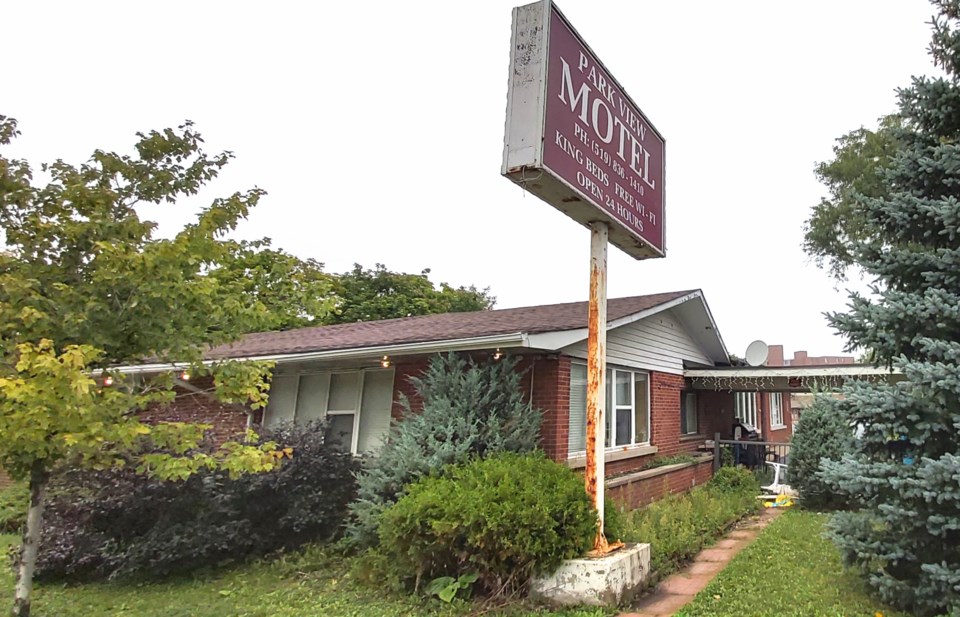There were two big housing stories in Guelph this week; one was about the development crunch on a one-kilometre stretch of Gordon Street, and the other was how over 100 people took part in a town hall about turning the Parkview Motel into supportive housing.
At the heart of both these issues is the same problem, nobody in Guelph wants anything to change, even if it means solving housing problems.
For the record, I get the stress that people in the south end are feeling. It seems like nary a planning meeting goes by without another mid-to-high-rise development coming to council for land somewhere along Gordon between Kortright and Arkell.
Calls by some councillors at this week’s planning meeting to see some kind of layout on the cumulative impact of all approved and pending projects for this stretch seems moot because it will just have to be updated next month anyway.
Still, should we be surprised that density is being concentrated in the south end? Hardly. There have been decisions on two high-density developments in other parts of town this year, one in the west end and the other downtown, and they were both voted down by council. The message? There’s only one place in town that’s taking big residential projects in Guelph, and now even they’re feeling the pinch.
Hold on south enders because I’m not exactly on your side either.
In your heart of hearts, you know that you moved to the south end of Guelph because it was suburban nirvana, single detached homes as far as the eye could see in a world of no sudden surprises. Sorry, this mode of planning had its faults from the beginning, and it’s taken decades for most planning professionals to admit it.
The question is how much longer it will take for the rest of us to admit that sprawl is over. The repeated concerns we hear about a lack of parking and roads being unable to carry the load of increased traffic have no hint of irony when spoken. Both the city and the developers are convinced that people are going to give up their cars and embrace active transportation, but no one seems to want to give up their car.
The dream of the big house, with a big yard, and a car that can take you anywhere and everywhere is hard to shake. For 70 years, that image has defined success, “adulting” if you will, and those that have overcame the odds to obtain it are unwilling to give it up.
Now let’s consider the Parkview Motel project. The Drop In Centre is looking to convert the existing building into 35 rooms of supportive housing, which is huge leap forward from the model of the emergency shelter system that has really done nothing to relieve homelessness and has merely installed a revolving door that only gives people a break from sleeping rough.
A NIMBY (Not In My Back Yard) reaction to this proposal was wholly inevitable, and it wasn’t helped that the first time the mass public heard about it was when Drop In Centre executive director Gail Hoekstra brought it up while delegating on behalf of another affordable housing project at a late summer council meeting.
I’ve spoken to Hoekstra and she admitted that she lacks a certain political savviness, but I would argue that there are systemic issues across all types of development projects, no matter the client, where people in a neighbourhood feel caught off guard about a proposal. I’ve lost count of how many times I’ve heard residents say that the statutory public meeting for a project is the first time they were aware of a development proposal.
In the specific case of the Parkview project, there’s the additional complication with the erroneous and hurtful stereotype of the homeless, that they’re violent, dirty, lazy, smelly and absolutely not to be trusted around the bright shiny things of a middle class neighbourhood.
At the virtual town hall on the subject Thursday, Hoekstra tried to make the case that since Parkview would be turned into *permanent* supportive housing; the residents that move in will have a sense of ownership and pride in the property, which will make them an asset to the neighbourhood. Plans like this have worked in other places, and Parkview seems ideally situated and designed to make it work here in Guelph.
But some stereotypes are hard to overcome though, and it’s going to take a whole lot of convincing to persuade some people to change their mind for the sake of improving the city for everyone.
The key to solving all these problems is communication. More of it. Change is hard enough, but we’ve seen time and again how angry people get when they feel like decisions are being made without their input.
Having said that, everyone in Guelph has got to realize that their backyard is going to change in the next 20 years and sharing the burden will make it easier on all of us.
